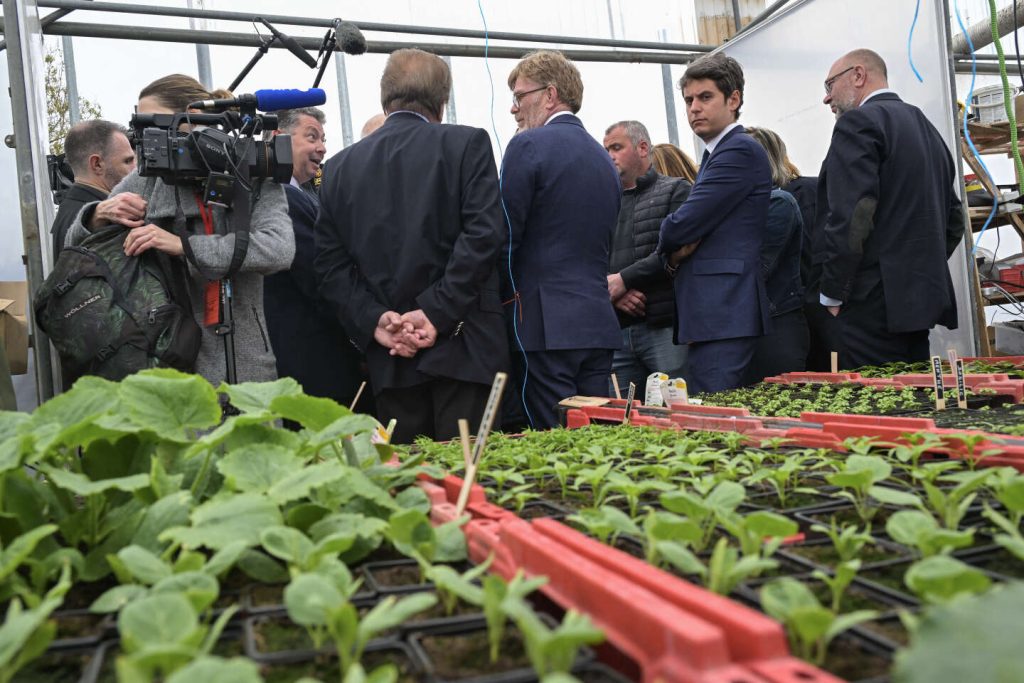The Minister of Agriculture, Marc Fesneau, and the Prime Minister, Gabriel Attal, visited a vegetable farm in Bretteville-sur-Ay on April 27, 2024. This visit coincided with the parliamentary debate surrounding the “Orientation Law for Agricultural Sovereignty and Generational Renewal” that had been postponed several times over the past two years. The bill, made up of twenty articles, was a campaign promise of Emmanuel Macron and was considered a key element of his second term in office. After being in the works since January 2023, the bill was finally reworked following protests from farmers earlier in the year.
The main goal of the bill is to ensure food sovereignty by placing agriculture as a “major public interest” in the law. This is a response to pressure from the National Federation of Agricultural Holders’ Unions (FNSEA). However, the primary focus of the bill is to facilitate the transfer of farms, help new farmers set up, and provide agricultural training, especially as one-third of farmers are expected to retire within the next ten years. Under pressure from farmers, the government has included measures to simplify certain environmental regulations in the bill, which has raised concerns about neglecting environmental transition goals.
The bill has faced criticism from opposition parties for being lacking in ambition and detrimental to environmental protection. Some have labeled it as “out of touch” and “poorly conceived.” The High Council for Climate, an independent advisory body, expressed concerns about the government’s reduced climate ambition in relation to food systems after the bill was revised. Despite these criticisms, the bill is being debated in parliament, with expectations that it will be a contentious issue due to its controversial content.
The proposed measures in the bill include simplifying environmental norms, such as regulations regarding hedges, and expediting legal procedures for water storage projects and livestock building constructions. While these measures are aimed at supporting farmers, they have sparked debates about the bill’s prioritization of economic interests over environmental concerns. The government’s efforts to strike a balance between supporting the agriculture sector and promoting environmental sustainability have been met with skepticism from various stakeholders. The bill’s impact on the agricultural sector and the environment is likely to be a key topic of discussion during the parliamentary debate.
In conclusion, the bill on agricultural sovereignty and generational renewal has become a critical issue for the government as it faces challenges from both farmers and environmental advocates. The debate surrounding the bill reflects broader tensions between economic development and environmental protection in the agriculture sector. The government’s attempt to address these concerns through legislative measures has drawn mixed reactions, with critics questioning the bill’s effectiveness in achieving its stated goals. The ultimate fate of the bill will depend on the outcome of the parliamentary debate and the ability of the government to address the concerns raised by various stakeholders.


